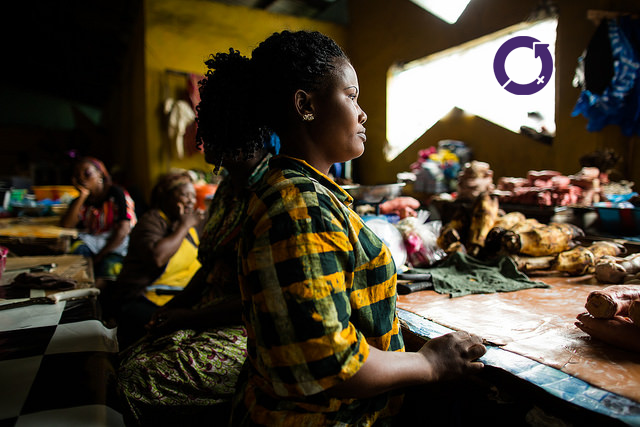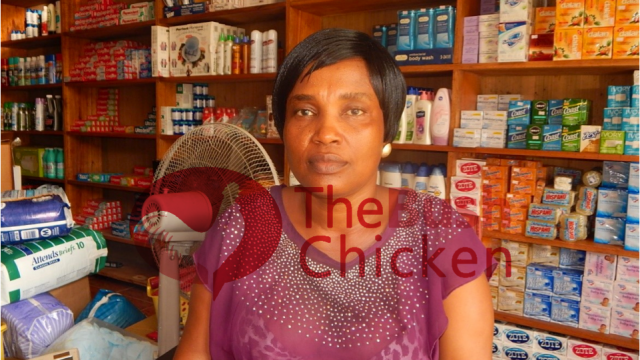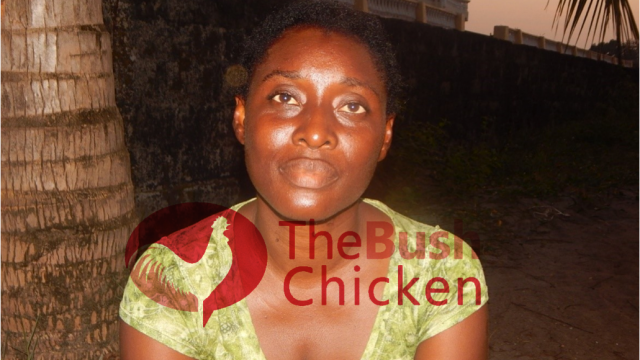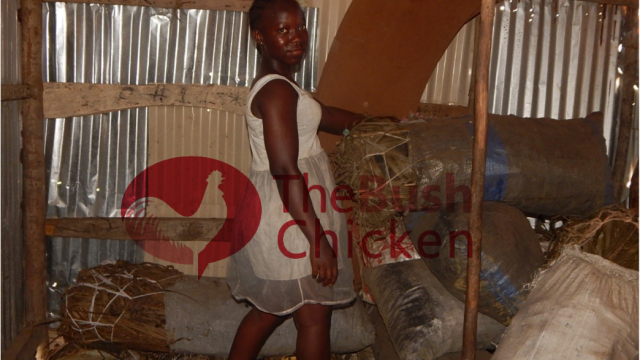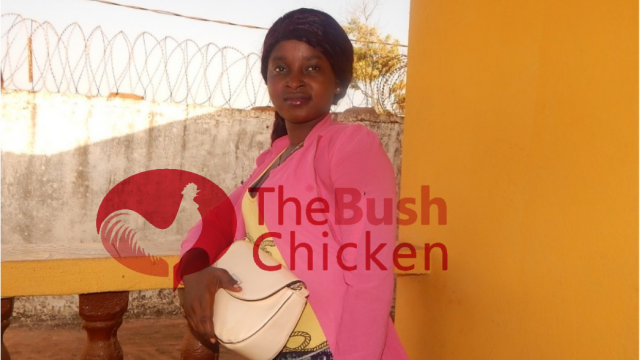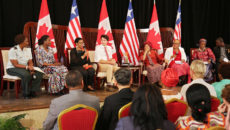MONROVIA, Montserrado — With over 78% of the informal economy being comprised of “market women,†the Liberian economy is primarily driven by women merchants. During the civil war, it was the market women who were brave enough to continue traveling across enemy lines to secure food and supplies for their communities and were very instrumental in helping pressure warring parties for a ceasefire.
Organizations like the Sirleaf Market Women’s Fund champion the strength and resilience Liberian women have harnessed to manage marketplaces in rural and urban centers of the country. The organization reports an estimated 500,000 women in Liberia earn their living as street vendors and traders. Market products include produce, seafood, garments, and other commodities, which are sold to support families and often times fund their children’s education.
The Bush Chicken visited with a few market women to discuss their businesses, challenges and future endeavors.
Varbah Casaliyah, General Goods Retailer     Â
Tell us about your business.
We’re located on Camp Johnson road and mainly involved in the business of ordering and selling American products including supplements and other products like cosmetics and detergent.
How long have you been in business?
For 14 years, I have been at several different businesses like selling palm oil and later exporting dry meat and dry fish to America. When things got difficult for me, I began to send money to my relatives in the States to buy me things. I used to sell them until I decided to open this place.
What is your motivation for doing business?
My motivation is the satisfaction of working for yourself and making money. I think it is better to work for yourself and make money than working for someone else.
Why do you think women primarily in your business?
I think it is because of the challenges in the country and the opportunities available in making your own business. It is understood that when women make business, they help their husbands with the responsibilities in the home. Sometimes, the man is not working or the salary is not much, so the woman has to be a help by contributing to the family needs. That’s why you see a lot of women getting into business now.
What some of the challenges you face?
Getting loans from the bank is sometimes very difficult. Sometimes the process is long and even if you are approved for the loan, you will not get the exact amount you want. You have to show a guarantor which is also difficult to get because nowadays in Liberia, people don’t want to trust anybody because others show reasons not to be trusted. Nobody will want to easily serve as a guarantor and you can’t get a loan without a guarantor.
Another challenge is electricity. For us here, there is no LEC current. They only provide current for streets light. And for the business I have, we need current. All the products require a cold environment. Even for the customers, when the place is hot it becomes uncomfortable for them. When they come to shop they hurry to get out because of the heat. There’s no current to switch on the AC.
Musu Momo, Cold Water Seller
Tell us about your business
I sell cold water. I started few months ago when things were becoming difficult for me and my children. So when my birthday was approaching I said to myself that I was not having any birthday party. I told my friends that anyone who wanted to give me gifts, should do so in cash rather than buying things.
How did you get your business started?
When the time came, I was able to generate some money. Since I had a plan to make a business, I took what I had received as gifts and combined it with a little savings I had made. I paid for a mini ice box and started by buying ten sacks of plastic mineral water at a price of L$50 for each. I cooled the water and sold it. From my sale I realized that I had made fifty percent profit of the amount I paid for the water.
I did that for two to three months and was able to get more money saved and bought an additional ice box. Currently, I have increased from buying ten sacks of water to 150 sacks every two days.
What are some of the challenges you face?
As a single parent of four children and also a university student, time allotment for all my activities is a challenge. Also getting the water company to make deliveries in time when I make orders is still a difficulty. However, I think I am overcoming them gradually.
Winnie Griggs, Student at Moore Public School and Coal Retailer
Tell us about the business you do and how it started?
Well, I sell fire coal by wholesale and retail. It is a business I am doing to help my mother attend to our family’s needs. I started late in December of last year by buying a single bag and selling it retail. Right now I am also selling by bag. All I do is to contact a coal burner to sell to me when he has mined his coal bill.
What so far have you seen as a challenge?
Really, I think there are many challenges. One is that my school takes most of my time. Another challenge is being able to trust the coal burners with your money in advance for the coal. Some of them will take your money and won’t deliver the coal.
Ellen Tokpah, Chinese Herbs Dealer
What are you selling?
I partner with Success World Incorporated. It’s a Chinese herbs dealer company. I take a quantity of the herbs from them, sell, and then get a percentage of what I sell.
How much do you make from the business?
We can really sell for them. So, the more we sell, the more money we make for ourselves. We travel to different cities in the counties and we get paid from our sales.
Why are you in business as a woman?
For me, I was in school but I dropped out because there is no money. I am doing this business to help myself, I don’t want to be a burden to people so I have to do this business to get money.
What are some challenges you face in business?
The challenge is convincing people to buy your goods because there are so many people selling. Also moving from one place to another to sell is a challenge, especially some of us leaving our families for days, weeks and sometimes even months.
Featured photo courtesy of Morgana Wingard
Amelia Bangura contributed to this article.
